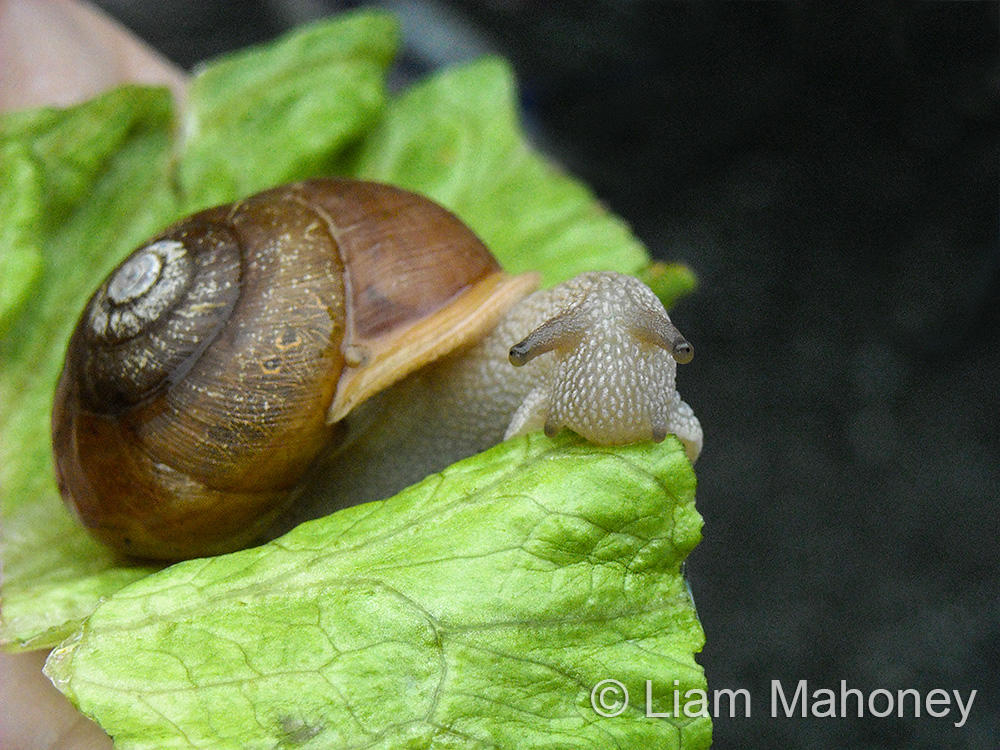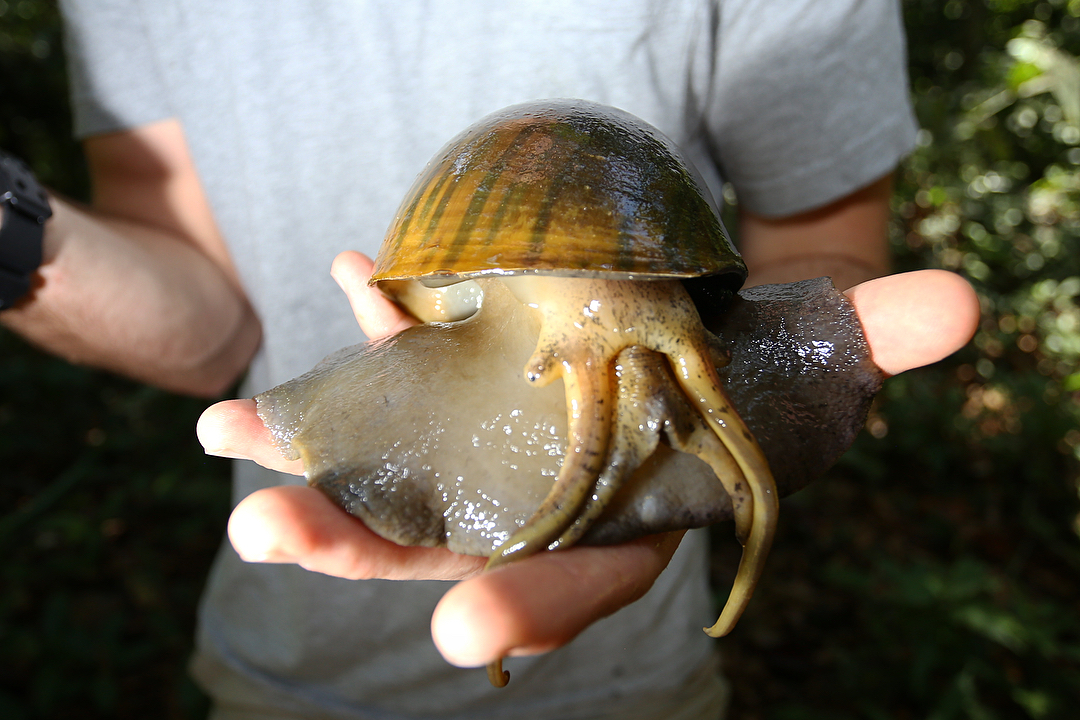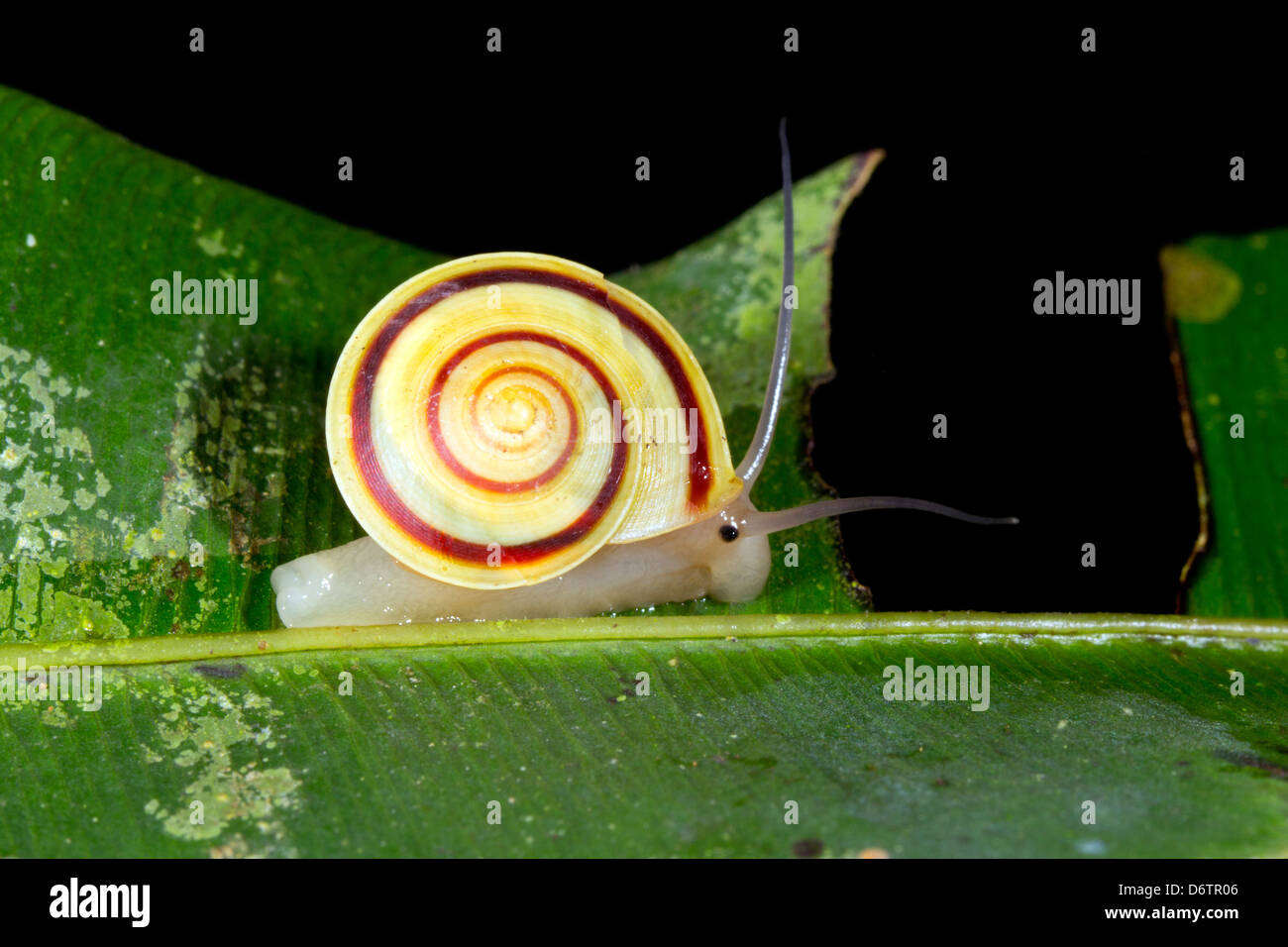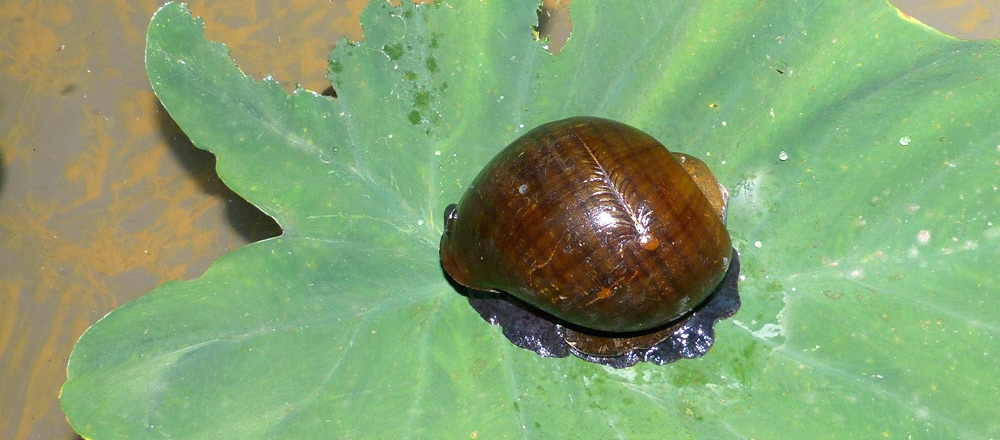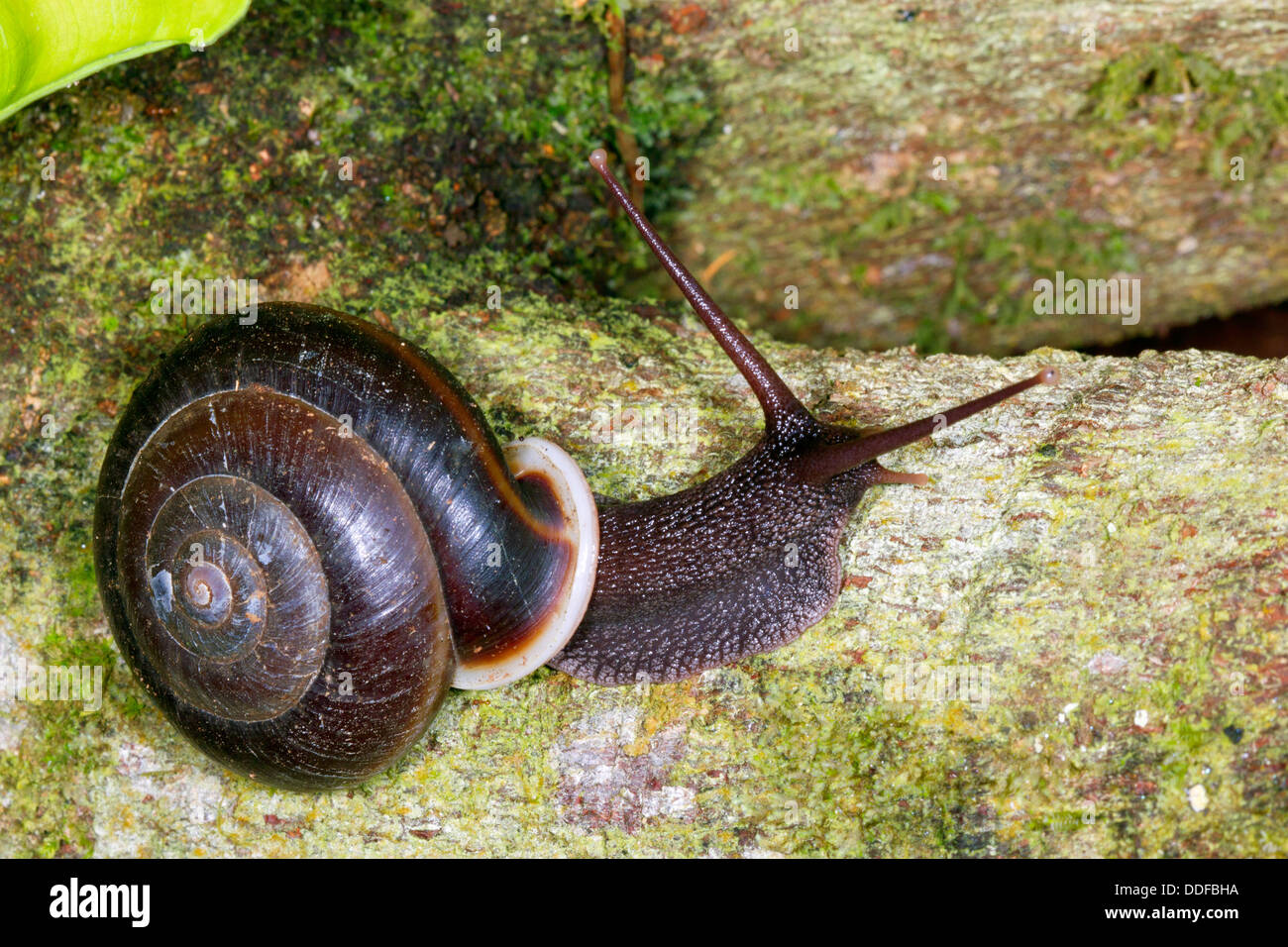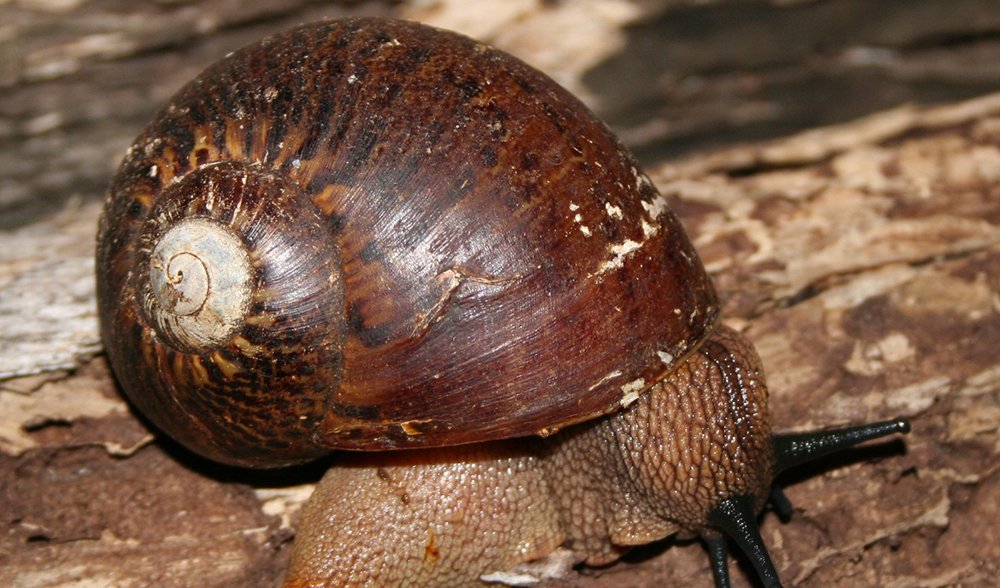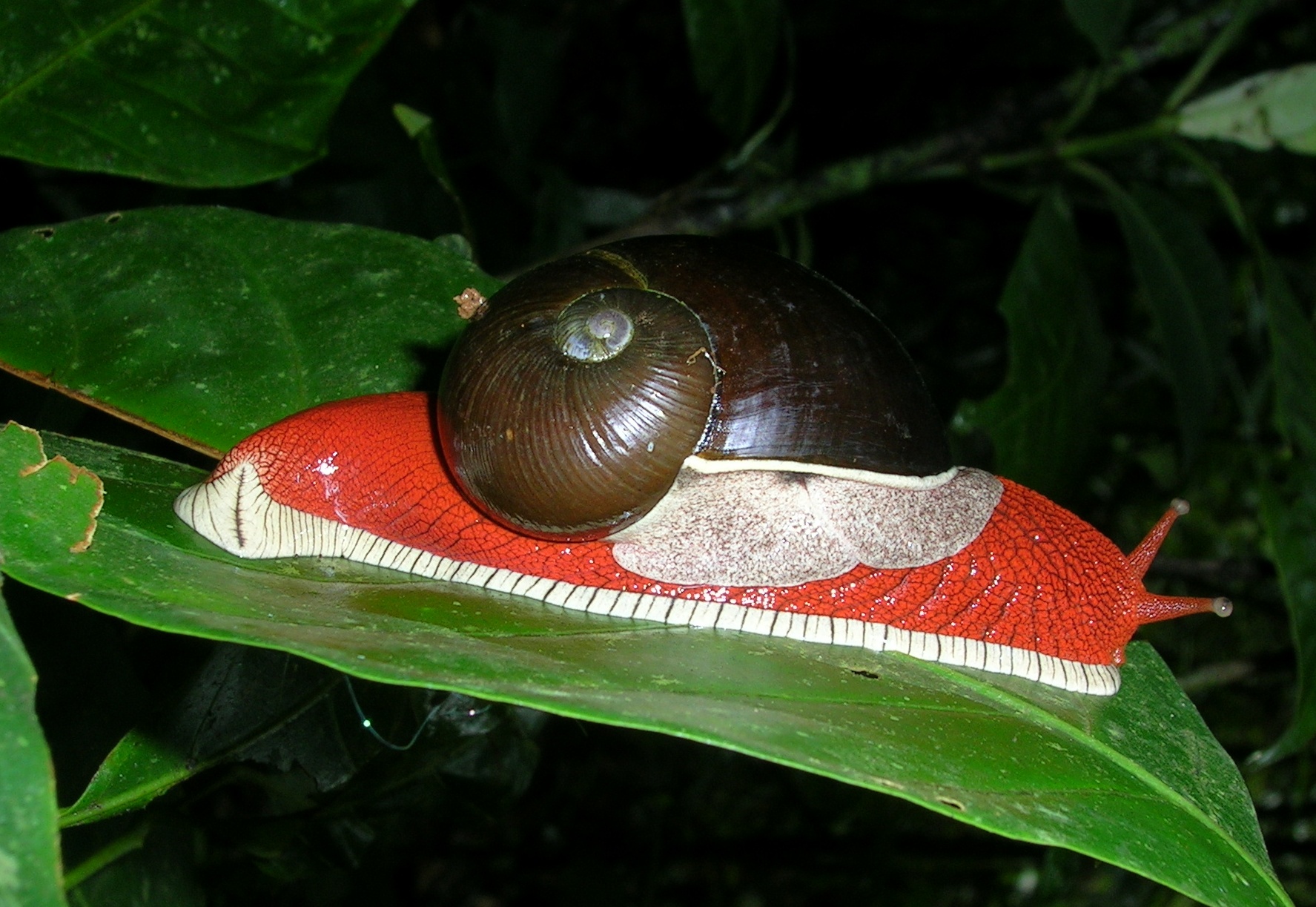Snails In The Rainforest

Despite the fact the mitchell s rainforest snail is nocturnal it can be spotted year round and has no specific season in which it may disappear or hibernate distribution and threats.
Snails in the rainforest. The snail used to be commonly found in rainforests and swampy parts of northern coastal lowlands and prefers palms and fig trees within rainforests. The shell is deep reddish chestnut to black in colour with two prominent yellow bands. Many native land snails and slugs live in the moist layers of litter on the forest floor and other moist habitats such as rotting logs under rocks or beneath debris. Species of the genus powelliphanta native of new zealand although they are carnivorous and can eat other snails must take care of opossums rats weasels pigs wekas gallirallus australis song thrushes.
Mitchell s rainforest snail thersites mitchellae is a large native land snail with a shell up to 55 mm wide and 50 mm high triangular in profile and with a thickened lip. In tropical rainforests of madagascar there is high diversity of species of terrestrial gastropods and many species has low population density so many of them are extremely rare. The body colour is black with a thin lighter line along the back. In eastern australia they are particularly diverse in rainforest areas.
Many different types of snails live in temperate to sub tropical climates. At wilbur s wildlife ours eat a range of vegetables such as carrot and cucumber. Land snails slugs the terrestrial environment is home to a vast array of snails and slugs. The species in the photo is most likely no exception to that.
The wet tropics area is home to over 220 species of terrestrial snails. Mitchell s rainforest snail is a large native land snail with a shell up to 55 mm wide and 50 mm high triangular in profile and with a thickened lip. One pair of tentacles found on top of the head is used to hold the eyes. To keep their shell healthy we feed our snails cuttlebone.
The slide shows a small about half an inch snail in the family streptaxidae genus streptartemon crawling on the rainforest litter and flanked by two small white mushrooms. Some snails have more predators than others either because of their physical characteristics or the habitat in which they live. On occasion they will scavenge dead animal s. The body colour is black with a thin lighter line along the back.
The rainforest environment is normally a very favourable place to support a variety of slugs and semi slugs. At least 86 of these are in the micro snail group those with shells less than 5mm in diameter. It is bigger than a tennis ball and is found in the australian rainforest. It also used to be found throughout coastal floodplain wetlands coastal swamp forests eastern riverine forests littoral rainforests northern warm temperate.
The largest land snail is the giant panda snail. Most streptaxid snails are carnivorous having evolved to eat other land snails. They feed mostly of fungi and plants. The shell is yellowish in colour with broad brown to dark brown spiral bands.
Giant panda snails have two pairs of tentacles. More than half of these land snails have not been formally described yet. About 50 of land snails in madagascar are related to land snails in africa.
